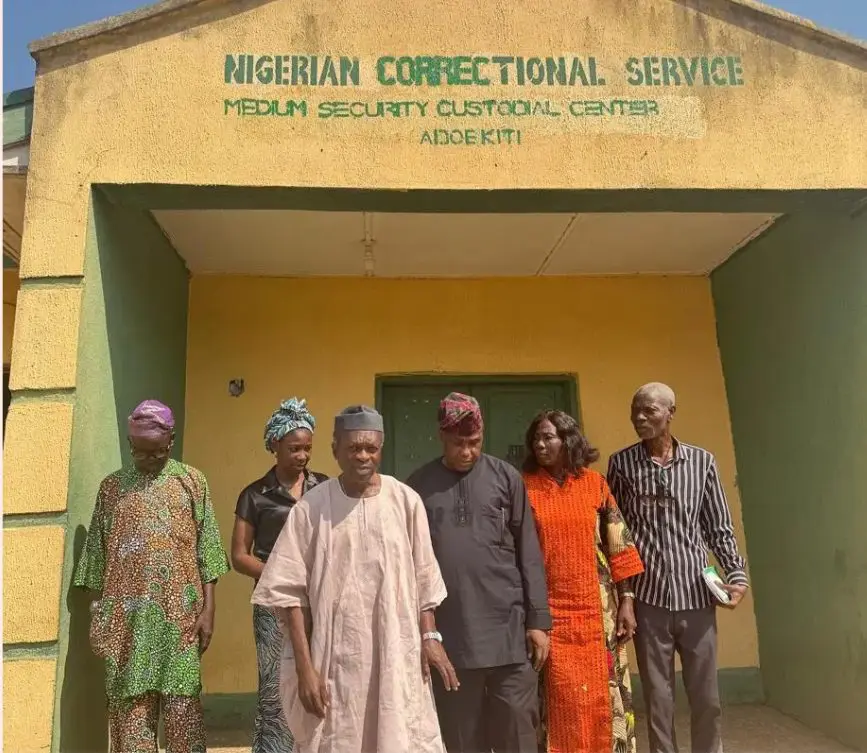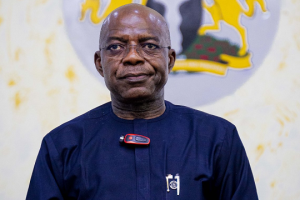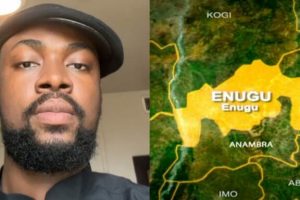
On Friday, leaders of the national caucus of the Yoruba sociopolitical group, Afenifere, paid a solidarity visit to lawyer and author Mr. Dele Farotimi at the Ado-Ekiti Correctional Centre. The group, led by prominent Yoruba leaders, conveyed a private message from their national leader, Chief Ayo Adebanjo, and inquired about Farotimi’s wellbeing during his time in detention.
Farotimi, a key member of Afenifere’s national caucus, is currently embroiled in a legal battle after being sued for allegedly defaming the founder of Afe Babalola University, Ado-Ekiti (ABUAD), Chief Afe Babalola. The case, which has garnered significant attention, comes at a time when Farotimi’s detention has sparked concerns over the fairness of the judicial process.
In a statement issued by Afenifere’s Deputy Secretary General, Alade Rotimi-John, the group expressed its deep dissatisfaction with the handling of Farotimi’s case by the Chief Magistrate presiding over the matter. Afenifere leaders specifically took issue with the magistrate’s decision on Tuesday, when the application for bail on the grounds of a bailable offence was denied. The group condemned the magistrate’s refusal to expedite the bail hearing, describing it as part of a larger “miscarriage of justice” that saw Farotimi being remanded in the correctional facility in the first place.
The statement further explained that Afenifere would decide on its next course of action after the Chief Magistrate delivers a ruling on the matter on December 20. The organization’s leadership has indicated that it is closely monitoring the proceedings and will respond accordingly depending on the outcome of the hearing.
Among the leaders of Afenifere who visited Farotimi at the correctional centre were Chief Supo Shonibare, Basorun Segun Sanni, Mrs. Nike Olujembola, Mrs. Toyin Falade, Pastor Olayemi Olajuyinnu, and Mr. Tunde Babarinde, as confirmed by the statement. These figures are all respected members of the Afenifere national caucus, which has long been influential in Yoruba and national politics.
Afenifere’s visit underscores the group’s commitment to standing by Farotimi in the face of what they view as an unjust legal process. The solidarity shown by the group reflects the strong support for Farotimi within the Yoruba political community, as well as the broader concerns over the perceived erosion of justice in the country. As the legal proceedings continue, the situation is expected to remain a point of contention, particularly within the Afenifere faction and other political observers.





